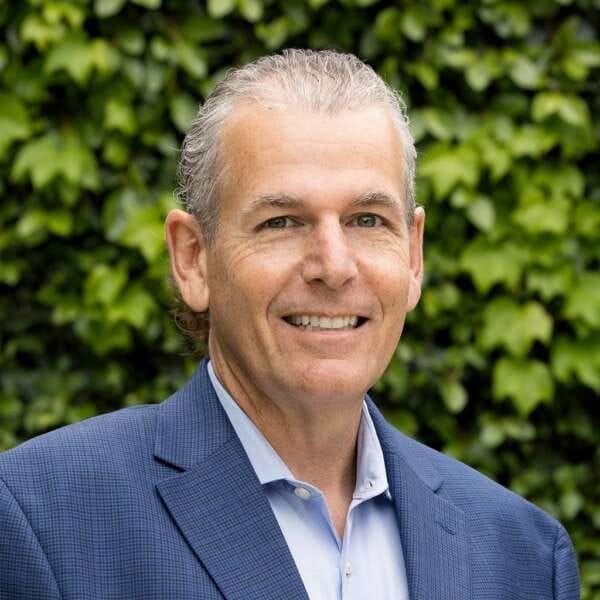Wesley Schultz is a Full Research Professor in the Division of Behavioral & Organizational Sciences at Claremont Graduate University. He has research affiliations with the Social Psychology Program, and with the Claremont Evaluation Center. His research focuses on issues of conservation and sustainability, and he uses principles of social psychology to understand and solve environmental problems. His work in this area has focused on a range of issues, including climate change, water conservation, recycling and waste management, and energy conservation, among others.
For the past 30 years, Schultz has worked on projects aimed at understanding the behaviors that cause environmental issues. His work is especially focused on developing scalable solutions that can help move us toward a sustainable future. Working with students, he has created, implemented, and evaluated new strategies for reducing household energy use, managing water resources, preventing litter and marine debris, and improving educational and conservation programs through zoos and aquariums.
Schultz earned his MA in social psychology from the University of Maine, and his PhD from Claremont Graduate University. Before coming to CGU, Schultz served as Professor of Psychological Science and Dean of Graduate Studies and Research at Cal State San Marcos, and he has held visiting positions at several universities in Europe. In applying the methods and principles of behavioral science, Schultz has worked with a range of governmental, nongovernmental, and corporate entities. A sample of the organizations with which he has worked includes the National Science Foundation, U.S. Environmental Protection Agency, U.S. Department of Energy, Keep America Beautiful, the American Zoological Association, and the World Wildlife Fund, among many others. Over the course of his career, his work has attracted more than $12 million in grants and contracts. His research has been featured in The Wall Street Journal, TedX, National Public Radio, and many other media outlets.
Currently, Schultz serves as past president of the International Association of Applied Psychology, Environmental Psychology Division. He has been appointed Fellow at the Association for Psychological Science, the Society for Personality and Social Psychology, and was elected to membership of the Society for Experimental Social Psychology. He is an active writer and editor and is currently serving as editor-in-chief for the Journal of Environmental Psychology.
Schultz, P. W. (2022). Secret agents of influence: Leveraging social norms for good. Current Directions in Psychological Science, 31, 443-450.
Wolske, K., Gillingham, K., & Schultz, P. W. (2020). Social influence on household energy behavior. Nature: Energy, 5, 202-212.
Schultz, P. W., Sorokina, A., & Javey, J. (2019). Social comparison as a tool to promote residential water conservation. Frontiers in Water, 10.
De Dominicis, S., Schultz, P. W., & Bonaiuto, M. (2017). Protecting the environment for self-interested reasons: Altruism is not the only pathway to sustainability. Frontiers in Psychology, 8, 1-13.
Woodcock, A., Hernandez, P., & Schultz, P. W. (2016). Diversifying science: Intervention programs moderate the effect of stereotype threat on motivation and career choice. Social Psychological and Personality Science, 7, 184-192. doi:10.1177/1948550615608401.
Schultz, P. W. (2014). Strategies for promoting proenvironmental behavior: Lots of tools but few instructions. European Psychologist, 19, 107-117.
Schultz, P. W., Bator, R., Tabanico, J., Bruni, C., Large, L. B. (2013). Littering in context: Personal and environmental predictors of littering behavior. Environment and Behavior, 45, 35-59.
Woodcock, A., Hernandez, P., Estrada, M., & Schultz, P. W. (2012). The consequences of chronic stereotype threat: Domain identification and attrition. Journal of Personality and Social Psychology, 103, 635-646. doi: 10.1037/a0029120.
Schultz, P. W. (2011). Conservation means behavior. Conservation Biology, 25, 1080-1083.
Schultz, P. W., Hernandez, P., Woodcock, A., Estrada, M., Chance, R., Aguilar, M., & Serpe, R. (2011). Patching the pipeline: Reducing educational disparities in the sciences through minority training programs. Educational Evaluation and Policy Analysis, 33, 95-114. http://dx.doi.org/10.3102/0162373710392371.
Schultz, P. W., Nolan, J., Cialdini, R., Goldstein, N., & Griskevicius, V. (2007). The constructive, destructive, and reconstructive power of social norms. Psychological Science, 18, 429-434.
Schultz, P. W. (2001). Assessing the structure of environmental concern: Concern for self, other people, and the biosphere. Journal of Environmental Psychology, 21, 1-13.
